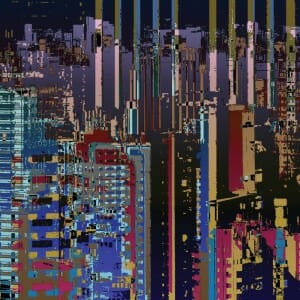Introducing Endless Mode: A New Games & Anime Site from Paste
For all of his prolificacy, his repertoire, his universal influence and all the hushed tones surrounding his name, Brian Eno has never really made music for singing. He’s certainly played around with the idea; his landmark work through the ‘70s featured intermittent vocal support, and his partnership with David Byrne has produced some honest-to-god pop songs—but most of these moments seemed entwined to the very essence of the music, the songwriting becoming a primary instrument. This isn’t the case with Drums Between the Bells; while texturally it runs the gambit of Eno’s various guises over the years, the voices present are coming through clearer, and more deliberately than ever before. This emphasis comes quite characteristically from the mind of Rick Holland, a poet, who understandably comes from a place of invisible rhythm and implied music. Eno has always been a background worker, but here he’s crafting the origins and scenario of another’s cadence, positioning his music like shadows to the words. It’s the sort of thing that could collapse in the hands of another talent, but the long-proven expertise of Eno transforms what probably should be an afterthought of an album into something rather terrific.
This is something of a spoken-word record, while Eno does draw together a fair amount of diligent beats, malformed electronics and peaceful ambience—it’s usually an oblique voice keeping pace. Sometimes its deep and ominous (“Bless This Space,”) sometimes its squelched and goofily robotic (“Glitch”) and sometimes it’s just a clear, crystalline human being (“The Real,”) but it’s always a voice. They add a sense of color to gorgeous, but occasionally lifeless soundscapes—Holland’s words are frigid, minimalist, cryptic, but always engaging; “in the age of diminishing life /across the blank dioxide above us /create new colors that… fly.”
That’s not to say the music is an afterthought, in fact Holland’s partnership seems to encourage the pop-crafter out of Eno. The poetry keeps most of the songs under the three-minute mark, forcing the songs to stay just as divergent as the tone of the writing—there’s hardly a centralized musical thread here, but the scattered, miniaturized experiments are just as enthralling as the long-form rewards of the best of Eno’s work. He also allows his indulgence to slip in a bit more than usual, specifically in “Glitch,” which is punctuated with a massive electro blast, but also in more subtle ways. “Multimedia” recalls the darkened club-bangers of brainy UK dubstep, and “Sounds Alien” seems to have an allegiance to a decidedly retro incarnation of Drum & Bass—he certainly sounds at home with his peers on Warp. After all, he never fails to reassure us in his artistry; the second-to-last track “Silence” has its name for a reason.
If Drums Between The Bells has a downfall, it might be simply that it doesn’t necessarily prop up the emotional core of Holland’s poetry. The cadences, demeanors and vocal tones certainly add an interesting wrinkle to Eno’s dynamic, but a few exceptions aside, I’m generally too enraptured in his rich compositions to decipher the staggered wordplay. Maybe that’s a personal downfall, but it cuts to a reassuring conclusion—Brian Eno is too good at making music to show off someone else’s talent. We should be so lucky if that’s his vice.
